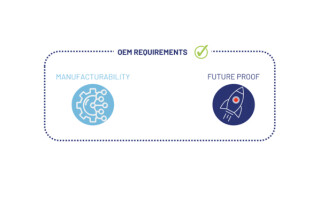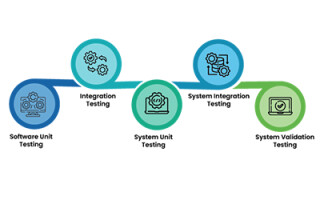Smart farming and the global food supply
April 24, 2017

The concept of smart farming is advancing with a good pace in agricultural business. A networked farm can offer several advantages such as useful data collection, high-precision crop control, and...
The concept of smart farming is advancing with a good pace in agricultural business. A networked farm can offer several advantages such as useful data collection, high-precision crop control, and automated farming techniques. Out of many advantages offered by Internet of Things (IoT), its ability of innovating the landscape of present farming methods is ground-breaking. IoT sensors provide information on crop yields, pest infestation, soil nutrition, and rainfall. IoT offers precise data which can be utilized to better improve farming techniques.
When the global population surpasses 10 billion, catering to food demands is expected to be the most crucial challenge to the world, according to a recent report on smart agriculture solutions. To prevent global starvation, governments across the world have started compelling agro-industrialists and farmers to boost their farm yield. Robust adoption of various smart agriculture solutions is helping them reach that goal. The global smart agriculture solutions market is also gaining prevalence across farming sectors riddled by challenges of water and soil degradation. Smart agriculture solutions are being adopted worldwide, ensuring stability in crop productivity around the world, witnessing a rise in prevalence of sustainable practices for cropland management.
FMI estimates that the global smart agriculture solutions market is projected to register an impressive growth at 11.2 percent CAGR, to reach revenues worth $40 billion USD through 2026. The demand for smart agriculture solutions is expected to be fueled by rising need for elimination of soil erosion from intensive farming, broadly available range of low-cost sensors, and increasing adoption of M2M-based tracking and monitoring systems. The market players offering smart agriculture solutions are struggling to deploy their offerings, owing to lack of wireless connectivity and internet in rural areas and farmlands.
For farmers and growers, extremely productive ways of raising livestock and cultivating soil have been provided by IoT, using easy-to-install, affordable sensors coupled with abundance of insightful data. Advancing by utilizing the benefits if IoT, smart farming applications are witnessing higher traction by delivering constant visibility into crop and soil health, storage conditions, machinery in use, energy consumption level, and animal behavior. Middleware technologies, such as the Kaa open-source platform of IoT, combine different farming facilities, connected devices, and sensors and suit the single-purpose products of smart farming such as livestock trackers, failure prediction systems, and smart metering devices. They can also be applied to multi-device solutions such as farming produce analytics, and resource mapping solutions.
Smart farming is also headed in another direction, which includes indoor growing methods that are intensively controlled. Small indoor farming environments, monitoring/administrating specific growing environments, called personal food computers, are being used at MIT Media Lab in its OpenAG initiative. An open-source platform is utilized for collection and sharing of data. The collected data is capable of being downloaded on other personal food computers, for reproducing climate variables such as air temperature, carbon dioxide, root-zone temperature, electrical conductivity, potential hydrogen, dissolved oxygen, and humidity. This enables users with precision of control for documenting, sharing, or recreating specific environment to grow and remove elements of human error and poor weather conditions.




